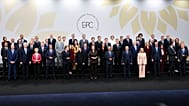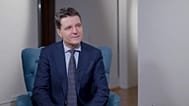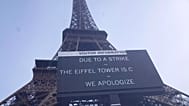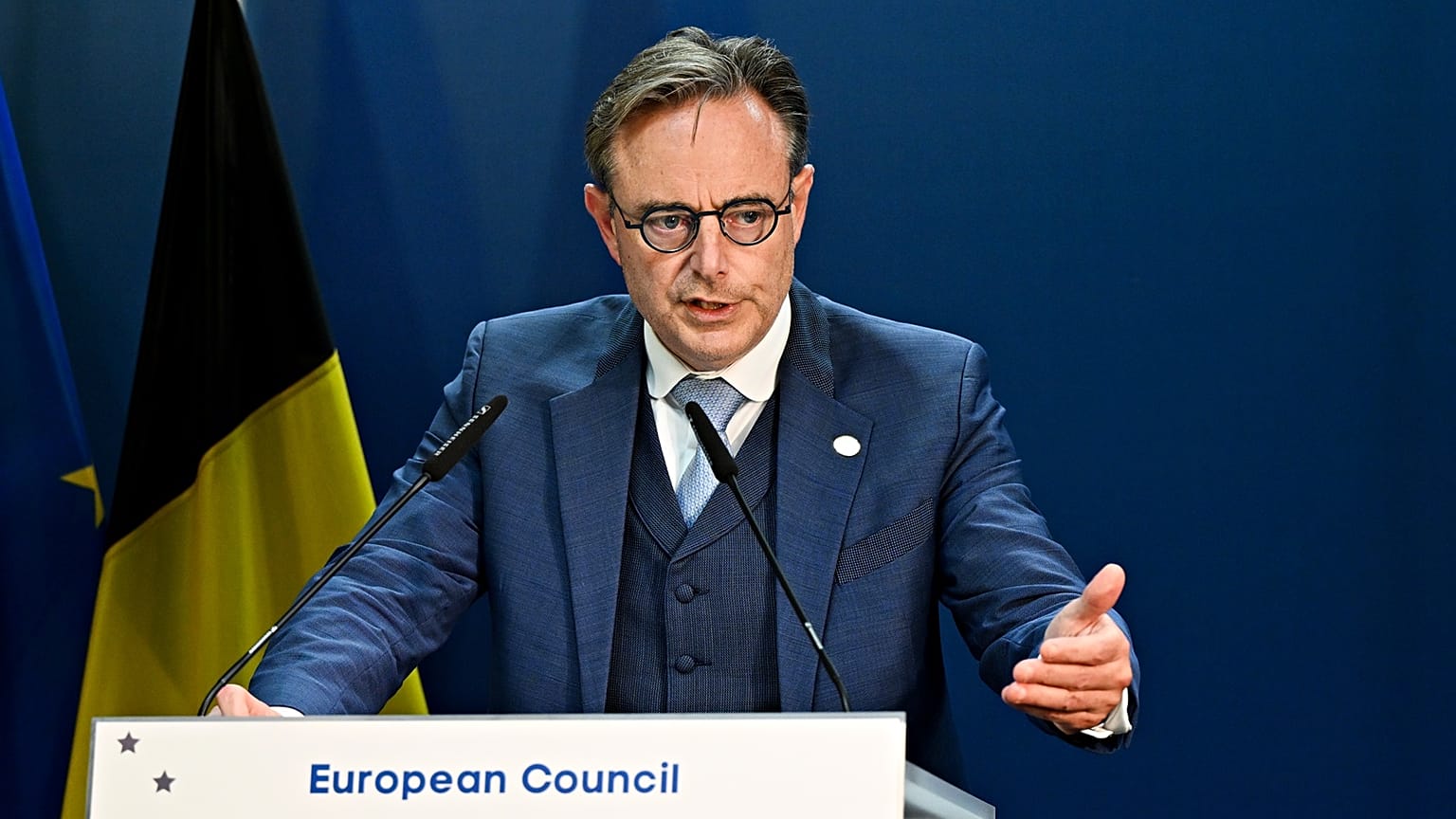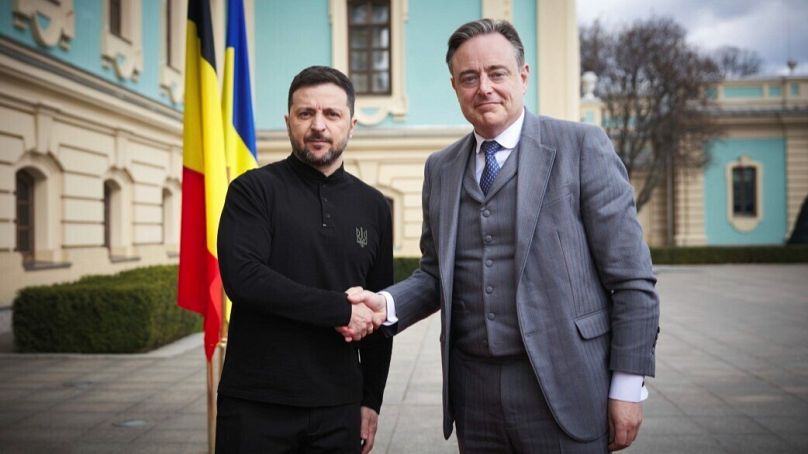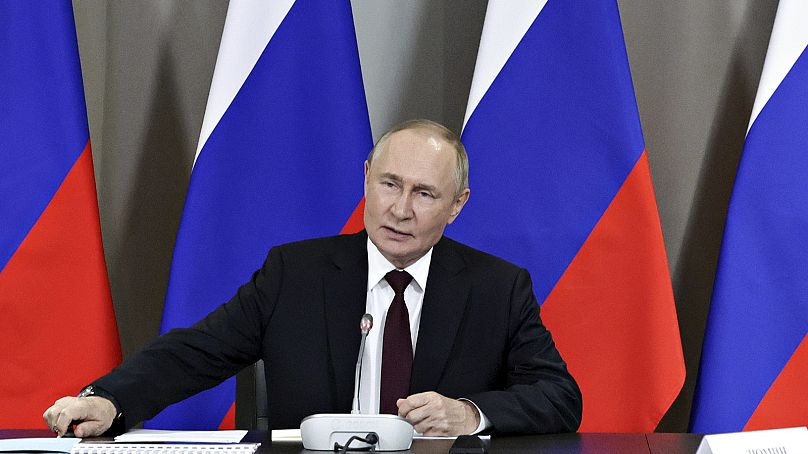"I want the maximum of legal certainty. I want solidarity," Belgium Prime Minister Bart De Wever said about the proposal to use Russian frozen assets.
 ADVERTISEMENT
ADVERTISEMENT
Bart De Wever, the prime minister of Belgium, has directly called on the European Commission and all member states to provide decisive answers and robust guarantees before using Russia's immobilised assets to issue a €140 billion loan to Ukraine, an audacious plan that is set to test the limits of international law.
"I want the maximum of legal certainty. I want solidarity. And I want transparency on the situation in the other countries," De Wever said in a press conference on Thursday, held on the sidelines of a European summit in Copenhagen.
"I don't think this is an unreasonable position."
The proposal devised by the Commission has thrown Belgium under the spotlight: the country houses Euroclear, the central securities depository that holds the bulk of the Russian Central Bank's assets frozen by Western allies in the early days of the war.
Under the scheme, which is still in early stages, Euroclear would transfer the cash balances to the Commission. The Commission would then issue a €140 billion loan to Ukraine, disbursed gradually over time and subject to conditions.
Ukraine would be asked to repay the loan only after Russia agrees to compensate for the damages caused. Hence, the name "Reparations Loan". Afterwards, the Commission would repay Euroclear, and Euroclear would repay Russia, completing the circle.
Given that the Kremlin is unlikely to provide reparations, the plan could be seen, in practice, as confiscation of sovereign assets, which is illegal under international law.
"Nobody around the table, including me, would like to see that money returned to Vladimir Putin. Nobody," De Wever told reporters.
In his remarks, the premier repeatedly described the Russian assets as "the chicken" and their windfall profits as "the eggs". So far, the EU has only captured the extraordinary revenues to reinforce support for Ukraine, leaving the money itself untouched.
But the new plan would go further and move the entire cash pot, potentially removing a powerful leverage for Kyiv and its allies at the negotiating table.
"The question now is: can we eat the chicken?" De Wever asked. "The first problem, of course, is that you lose the golden eggs if you eat the chickens. You have to consider that. If you put the chicken on the table and you eat it, then you lose a golden egg."
The premier, however, recognised the urgency to increase assistance to Kyiv after the change in policy of the United States, which has virtually cut off the funds. President Donald Trump has often framed the invasion strictly as a European problem.
Kyiv is estimated to need €60 billion between 2026 and 2027 to plug its budgetary deficit, and a similar amount to procure weapons and ammunition.
"We are in acute problems. If Europe has to pay, and only Europe has to pay, for the Ukrainians and the war, we will need a lot of money," De Wever said.
"I understand the appetite to eat the chicken now."
De Wever predicted the "Coalition of the Willing", the allied group co-led by France and the United Kingdom to provide security guarantees to post-war Ukraine, might soon become the "Coalition of the Bill" following Washington's removal.
"You have to put your money where your mouth is," he said.
De Wever's six questions
In his remarks on Thursday, De Wever listed six questions that he wants the Commission and member states to fully clarify before moving forward with the "Reparations Loan".
- The management of arbitration cases launched by Russia
- The need to ensure full respect for international law
- The mutualisation of risks between member states
- The protection of the euro as a reserve currency
- The use of the Russian assets held outside Belgium
- The future of the ongoing G7 loan, based on windfall profits
"We are already willing and able to go forward. It's no problem. But I want answers on every question I ask," De Wever stressed.
The premier made special emphasis on the mutualisation of risks to ensure Belgium, a country of 11 million people with a GDP of €664 billion, is not left alone to fend for itself.
Germany, France, the Baltics and the Nordics have already endorsed the new scheme.
"If we go into uncharted waters, we might be liable for interests. We might be liable for damages. And this will put us in litigation for many, many years. So every country will have to guarantee, proportionally, (in) the case that this goes wrong," he said.
"It is risky what we are going to do. I want everybody to be aware of that. And I want a signature: We're going in that boat with you. Whatever it takes, wherever it may sail, and whatever it might encounter."
His appeal comes after Russia passed a decree to accelerate the process of redistributing assets within the country, which could be used as a basis for retaliation.
"We are talking about plans for the illegal seizure of Russian property. In Russian, we call that simply theft," spokesperson Dmitry Peskov said, adding, "the persons involved will be prosecuted in one way or another, they will all be called to account".
On Wednesday, Commission President Ursula von der Leyen sought to assuage the concerns, saying: "It's absolutely clear that Belgium cannot be the only member state that is carrying the risk, but the risks have to be put on broader shoulders."
Officials in the Commission say their preferred option would be to use the EU budget as the ultimate safeguard, but this would require the unanimity of all 27 capitals.
De Wever openly admitted that the most he aspires to is the backing of 25, an apparent reference to Hungary and Slovakia, two vocal critics of the bloc's Ukraine policy.
The premier was also irked by the fact that the "Reparations Loan" would be exclusively based on the money held at Euroclear, despite Russian sovereign assets being frozen, to a lesser extent, by other allies, such as the UK, Switzerland, the US and Japan.
"Let's eat all the chickens, not just mine. It will be a KFC moment for Europe," he said. "Mine is a big one. But there are some sizable others as well, if I'm correctly informed."
"The least I can ask from my colleagues is to be transparent."
Asked about De Wever's remarks, a spokesperson for the Commission said the proposal was still in the making and would take into account the political feedback.
"We're open to having such discussions in the context of the G7 meetings," the spokesperson said. "What other actors do is their decision."


